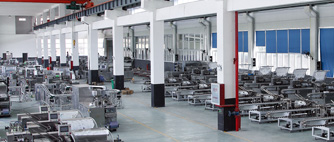Do not change prices and disappear
Date:2018-03-19
[Foreword] The original intention of the government to lower the price of drugs was to benefit people's livelihood and give back to the people. This is the general direction and major goal of the new medical reform. It is also a commitment of the party and the government and is the hope of the people. However, the shortage of some drugs is not entirely due to low prices, and some are due to unconventional, small amounts, and some because of toxic side effects, and some because of the high production requirements. If blindly blindly raising prices, it is likely to protect backward medicine and enterprises, which will be detrimental to the pharmaceutical industry and adverse to the health of the people. The previous shortage of protamine once again triggered public anxiety about the disappearance of cheap drugs. But is the fact so true? Does cheapness mean a shortage? Will price increase solve the problem? Will essential drugs with low price as their salient features face difficulties in securing supply?
One question: Is the medicine price low? Is it necessarily in short supply? The cheap medicines that are commonly found in the market are mostly low-priced medicines that can be reimbursed by Medicare to treat common diseases and meet basic medical needs.
The vast majority of these types of drugs have been included in the basic drug list and have become essential drugs. The government has adopted pricing methods and adopted centralized purchasing methods. Some of the cheap medicines in non-basic medicine, such as protamine, are priced by the government and some belong to the category of corporate autonomy.
If the drug price is low and the profit is thin, will it be inevitably in short supply? To answer this question, we must first analyze two enthusiasm: production enthusiasm and enthusiasm. It may be useful to analyze essential medicines as an example.
Let's look at production enthusiasm first. According to the tendering situation of the base medicines in various places, in order to win the bid, the competition of the pharmaceutical factories is very fierce, indicating that they want to share this piece of cake. After Shandong Qidu Pharmaceutical Co., Ltd. won the bid, although the profit was reduced, the sales volume and sales volume went up. The most important thing is that it has gained market share and has strengthened the strength of the company. Among the companies that have low profits and no money to make, there are very few companies that win the bid. This can explain the problem.
Look again at using positivity. Drugs, as special commodities, have particularities in their use. Hospitals and doctors play a leading role. Prior to the implementation of the basic drug system, some drugs appeared to be price cuts and died. This has a direct relationship with the old system of medical care for doctors. Doctors prescribe large prescriptions and high-priced drugs, adding more achievements and higher income. After the implementation of the basic drug system, the supporting reforms will eliminate the use of drugs to support medical practitioners. Doctors will not rely on prescribing drugs to survive. Cheaper drugs will have room for survival. This point has been confirmed by grassroots practice in the new medical reforms.
For the cheap drugs in non-essential medicines, if there is no guarantee for large orders, the enthusiasm of enterprises will certainly be affected.
The government controls the prices of some medicines. The original intention was to lower the price of drugs and benefit the people's livelihood. This is the general direction and goals of the new medical reform, the commitment of the party and the government, and the hope of the people. Of course, in the course of specific implementation, we must continue to improve and protect the enthusiasm of enterprises in producing cheap drugs.
In this regard, there must be appropriate compensation mechanisms, such as tax incentives, financial subsidies, and tilting of tenders, etc.; it is necessary to promote the separation of medicines and give doctors reasonable income so that medicines no longer serve as a source of revenue for hospitals, and changes in the "hidden rules" of drug distribution. Promote specialized, socialized, and informationized logistics methods to minimize the circulation costs of medicines from manufacturers to patients. To reflect the reasonable prices of medicines, timely adjustments should be made based on changes in consumer price levels and raw material price levels. For decades, it is not a good idea.



















